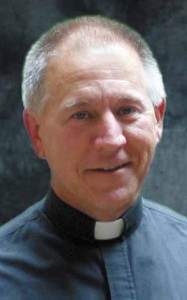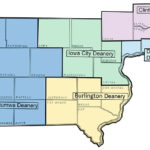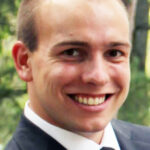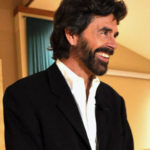By Fr. Bud Grant
According to Pew Research only 13 percent of Americans deny climate change entirely, 11 percent saying that “we just don’t know enough yet” and 22 percent thinking that it is real, but mostly natural. The reason given by doubters is twofold: lack of exposure to the evidence and being awash in anti-climate change messaging. Simply put, they are just confused by the conflicting claims. It is no wonder.

First, the evidence: the IPCC (International Panel on Climate Change) consists of 3,800 volunteer scientists from 195 countries in four working groups under the auspices of the U.N. and the World Meteorological Organization. It has issued five thorough assessment reports since 1990. Their conclusion is that it is real, anthropogenic and so far advanced that it cannot be stopped, only “adapted to” and “mitigated.” Ninety-seven percent of climate scientists (The Guardian) say “the earth is getting warmer mostly because of human activity.” The data: rising sea levels (twice as high in the last decade as in the previous100); global temperature rise (the warmest 10 are in the last 12 years); melting glaciers and ice and reduced snow cover (rapid decrease in the past 50 years); increasingly numerous extreme weather events (NASA).
Who are the messengers of denial? A study by Drexel University reveals that oil wealthy Koch Industries and ExxonMobil and other “ultra-free-market” ideologues are siphoning donations to about 139 “dark money outlets (a sort of influence laundering) with innocuous names like Donors Trust and Donors Capital with combined capital of $900 million. The point is that, as with American politics in general, a few deep pocketed, agenda-driven oligarchs can dangerously distort the public conversation, reducing it to a political mud fight by draining it of scientific, ethical and, yes, religious dimensions. Significantly, their primary objective is to deny that there is any scientific consensus … and 175 other myths (cf. skeptical science.com).
Many skeptics urge caution, fearing that investing in climate change mitigation and adaptation is very costly and reduces standards of living. There is some truth to that, but given the stakes — viability of life on the planet — who is more credible: thousands of experts from hundreds of countries producing peer-reviewed work and achieving near unanimity, or 139 privately funded “dark” organizations with an obvious bias?
Some folks are just a-priori determined to reject any information that conflicts with their truth claims. Denying facts, they are not obliged to prove unfounded claims that, for example, climate change is a ruse foisted by a left-wing cabal to deny civil liberties and conscript the nation’s wealth toward their green allies.
No rational argument can reach them. Intransigent deniers are deeply afraid of an unknown future (for the record, anyone who is NOT kind of scared is probably just not realistic). They channel this fear into fierce anger against anyone who disagrees. They embrace a black and white world view that pits good against evil. Politically they are extremists, both liberal and conservative (The Republic: Misha Fisher, Nov. 11, 2013: conservative ideologues tend to reject evolution and climate change, liberals are skeptics of nuclear power and GMOs).
Pope Francis’ encyclical “Laudato Si” addresses these, but it is really about relationships with creation, with one another and with God. These strands make up the weave of the common good so that to tug on one thread is to unravel the whole seamless garment. Environmental crises now threaten life on the planet: that is more than enough evidence to require the pope’s moral and spiritual authority. The Holy Father claims that over-consumption is the root of environmental problems. Climate change is one consequence; it is real, anthropogenic, advanced. His solution is relational: heal all of our relationships, most importantly that with God. “Creatures tend towards God, and in turn it is proper to every living being to tend towards other things, so that throughout the universe we can find any number of constant and secretly interwoven relationships” “Laudato Si” (240).
(Father Bud Grant is a professor of theology at St. Ambrose University in Davenport.)











